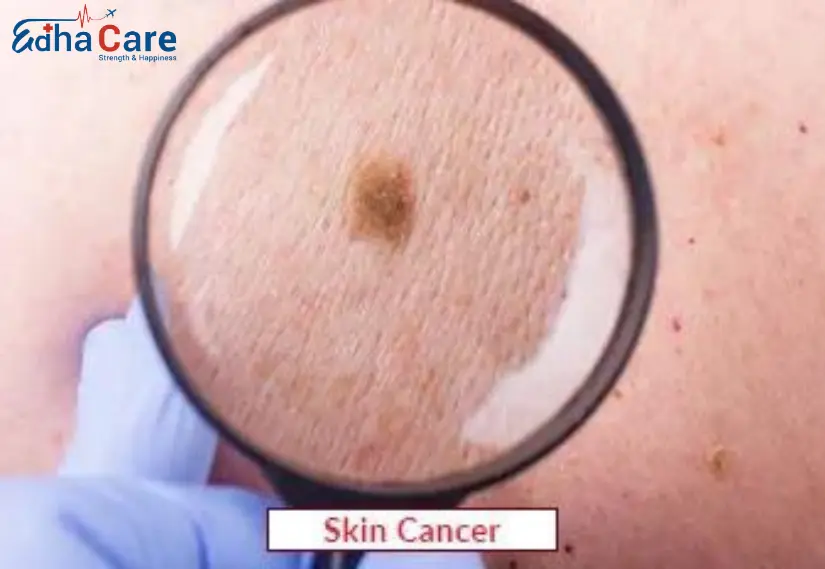Skin cancer is one of the most commonly diagnosed cancers worldwide, affecting millions of people each year. It typically arises due to prolonged exposure to ultraviolet (UV) rays from the sun or tanning beds. Other risk factors include fair skin, a family history of skin cancer, weakened immunity, or previous exposure to toxic substances. Fortunately, Skin Cancer Treatment in India offers patients access to world-class care, cutting-edge technology, and internationally trained specialists—all at a fraction of the cost charged in Western countries.
Understanding Skin Cancer and Its Types
Skin cancer occurs when abnormal skin cells multiply uncontrollably. While it can develop anywhere on the body, it is most commonly found on sun-exposed areas like the face, neck, arms, and hands. The most common types of skin cancer include:
- Basal Cell Carcinoma (BCC) – slow-growing and rarely spreads but can damage nearby tissue.
- Squamous Cell Carcinoma (SCC) – more aggressive and may spread without early treatment.
- Melanoma – a dangerous type that develops in pigment-producing cells and can quickly spread to other organs.
- Rare types – such as Merkel cell carcinoma and Kaposi's sarcoma, which require specialized care.
Why Choose Skin Cancer Treatment in India?
India has emerged as a top destination for medical tourism, especially for cancer care. Patients from the USA, UK, UAE, and Africa often choose India for its high-quality treatments and affordability. Here’s why:
- Experienced oncologists and dermatologists trained in the latest global techniques.
- Accredited hospitals (JCI/NABH) equipped with advanced surgical and radiation technology.
- Quick diagnosis and treatment with minimal waiting times.
- Comprehensive support from medical facilitators like EdhaCare, who assist with visas, airport pickup, accommodation, and language support.
Common Procedures Used in Skin Cancer Treatment
India offers a wide range of advanced options for skin cancer treatment depending on the type, stage, and patient’s condition. These include:
- Mohs Surgery – a precise method ideal for facial cancers, removing cancer layer-by-layer.
- Surgical Excision – removing the tumor and surrounding healthy tissue.
- Cryotherapy – freezing early-stage lesions with liquid nitrogen.
- Radiation Therapy – used when surgery isn’t suitable or for deep-seated tumors.
- Chemotherapy – effective for cancers that have spread beyond the skin.
- Targeted and Immunotherapy – particularly for advanced melanoma.
- Topical Medications – prescribed for superficial cancers.
Every patient receives a personalized treatment plan created by a multidisciplinary team of specialists.
Cost of Skin Cancer Treatment in India
One of the key reasons international patients choose India is the affordability of care. Here’s an approximate breakdown of the Cost of Skin Cancer Treatment in India:
Treatment TypeEstimated Cost (USD)Mohs SurgeryUSD 2,000 – USD 4,000Radiation TherapyUSD 1,500 – USD 5,000Chemotherapy (per cycle)USD 1,000 – USD 3,000Immunotherapy (monthly)USD 2,000 – USD 5,000
These prices are significantly lower than in countries like the USA, UK, or Australia—without compromising on treatment quality or success rate.
Recovery and Post-Treatment Care
Recovery depends on the treatment type. Surgical wounds typically heal within weeks, while radiation and chemotherapy may lead to fatigue that lasts slightly longer. Post-treatment care in India includes:
- Regular follow-ups every 3–6 months.
- Sun protection guidance to prevent recurrence.
- Emotional and psychological support from experienced counselors.
With proper care and monitoring, many patients return to their normal lives with minimal scarring or discomfort.
Success Rate of Skin Cancer Treatment in India
India’s success rate for skin cancer treatment is impressive. Basal cell and squamous cell carcinomas have a cure rate of over 90% when detected early. Even in cases of advanced melanoma, India’s comprehensive and advanced treatment methods give patients a high chance of survival and recovery.





Comments